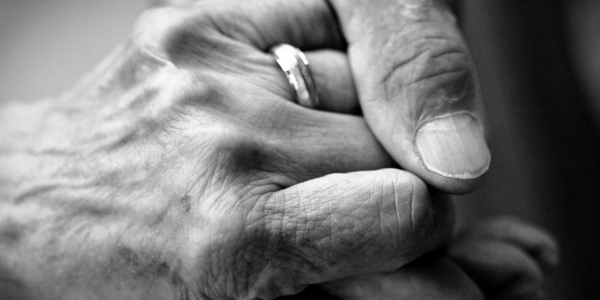Ormolu’s Story: A Story of Lewy Body Dementia
Twenty-four hours after the surgery she was moved to a rehabilitation facility in Shreveport, LA for a two week stay. During this time, Ormolu had tremendous pain in her back. Once while preparing her for rehab, a young therapist asked Ormolu to lay on her back on a leather couch for some exercises, Ormolu said, “You know I have had back surgery, don’t you?” The therapist replied, “You did?” After two weeks of this, Ormolu was released to go home. She was still hurting terribly. I returned to the neurosurgeon to complain. He said he would have to put her in the hospital to see what the problem was.
During this time, MRI’s, X-rays and CAT scans were done, and other doctors were called in to consult. At the end of nine days, our doctor says, “You’re just a mystery. We don’t know why you are hurting.” He set up an appointment for us with a pain specialist doctor. Without even looking at Ormolu, this doctor wanted to put a machine on her back, which would mask the pain. We did not go back to this doctor.
The next week we had a previously scheduled appointment with her rheumatologist, who took x-rays of her whole back looking for any arthritis. After looking at his x-rays, he said, “You need a second opinion,” and set us up with a spine specialist.
This doctor took X-rays of her full spine and discovered that two vertebrae—above where our doctor had put rods in—were deteriorated. He recommended that we go to a scoliosis center 3 hours away in Texas to see an expert.
Ormolu was then scheduled for surgery on January 10, 2012. This was a major surgery. She was under anesthesia for nine hours while they put 12 inches of titanium rods in her back. He then scheduled for her to return about four weeks later to put in in four more inches of rods. This time, she was under anesthesia for five hours. Each operation required two weeks of rehab in Texas.
At the end of the second rehab and 14 hours of anesthesia, the hospital would not release her to me, but would only release her to a skilled nursing facility (SNF) due to her cognitive impairment (dementia). We found one within a few blocks of our home.
All the way back from Texas to Louisiana, Ormolu kept saying, “you’re going the wrong way”. I knew then that she was disoriented.
When we arrived at the SNF they were ready for her. Of course I could not stay in the SNF with her, so I went home and returned the next morning at around 5:30 AM. Ormolu said, “I called for some help and they said they would be right there, but they never came.” I complained about that. The next night, I again went home and returned the next morning at 5:30 AM. Ormolu was on the floor and two aides were trying to get her up. She was trying to get to the bathroom.
That evening I went to the administrator’s office and told him that I was taking Ormolu home. I said, “I don’t know how I’m going to care for her, but I can put a pancake on a plate, walk up and down the hall for 30 minutes and come in the room and say ‘Here’s your breakfast,’ and I can give her a bed that doesn’t squeak.” So I left. When we walked into our home, Ormolu said, “My home,” and seemed to be all right.
An appointment had been made for us with our family doctor. The doctor gave Ormolu the standard tests to see if she had dementia. He started her on a mild dose of dementia medication. As time went on, I began to research dementia after anesthesia and came across various symptoms.
Ormolu began to show symptoms such as, “jiggling” of her feet. I researched this and the more I found, I felt she had something called Lewy body dementia (LBD). I discovered dementia is an “umbrella” term and that Alzheimer’s is the most prominent form of dementia, but the second most common form is Lewy body dementia. Through personal stories about this disease, I asked our doctor to send Ormolu to a neurologist for an official diagnosis. The neurologist agreed with me that Ormolu did indeed have LBD.
In the last two weeks of Ormolu’s life, she deteriorated quickly until she was gone.
I need to say something about her medicine. There are only a few dementia medications given for this disease, and they were only effective for about 18 months. I continued to give them to Ormolu until about three weeks before she succumbed. After their effectiveness is gone, there is nothing more you can do for the patient.
Lewy body dementia is a terrible disease and more research needs to be done.
In my opinion, when people are given the tests for dementia and it comes up positive, people automatically assume they have Alzheimer’s disease, and that is not always the case. A proper diagnosis should be made to determine the exact form of dementia a person has.
Ormolu’s legs were very weak toward the end, and I couldn’t keep her from falling. I used bed rails on her side of the bed. I used belts to her in her recliner chair, but she would get out of the belt and fall out of the chair.
So, if this is your case, get some help from an assisted living facility or other type of help. A caregiver can’t do it all by himself.
I miss my Ormolu, and I couldn’t help her by myself.
It’s a terrible disease.

Robert Napper
Nov 05, 2016